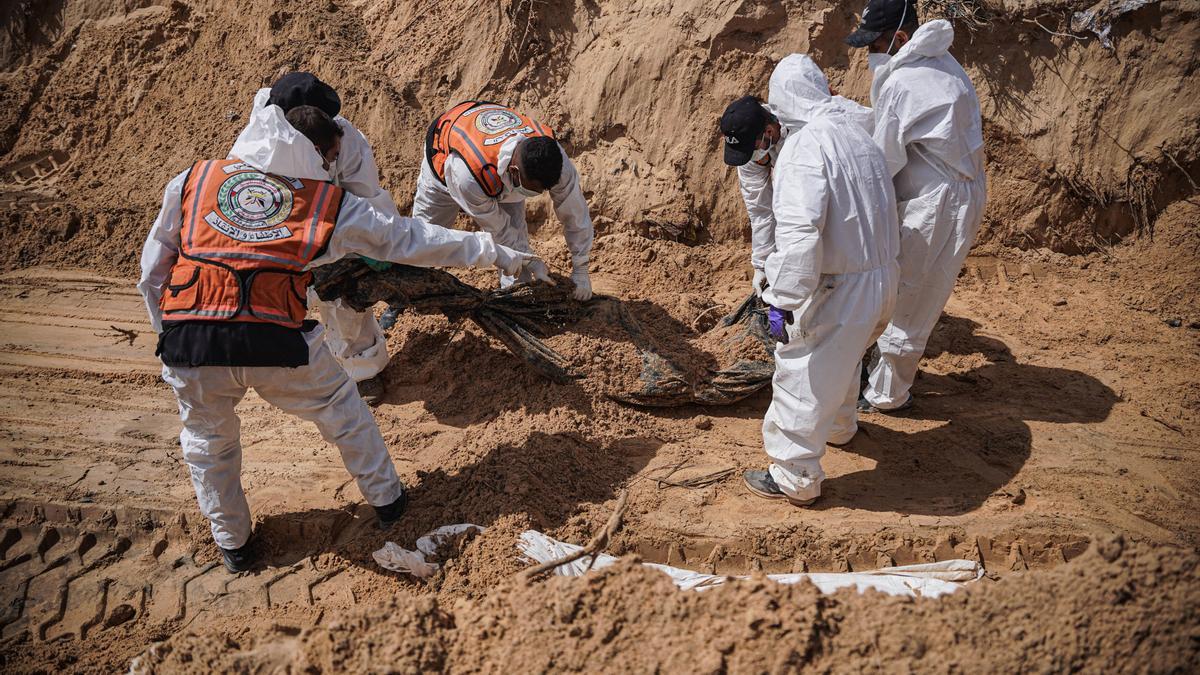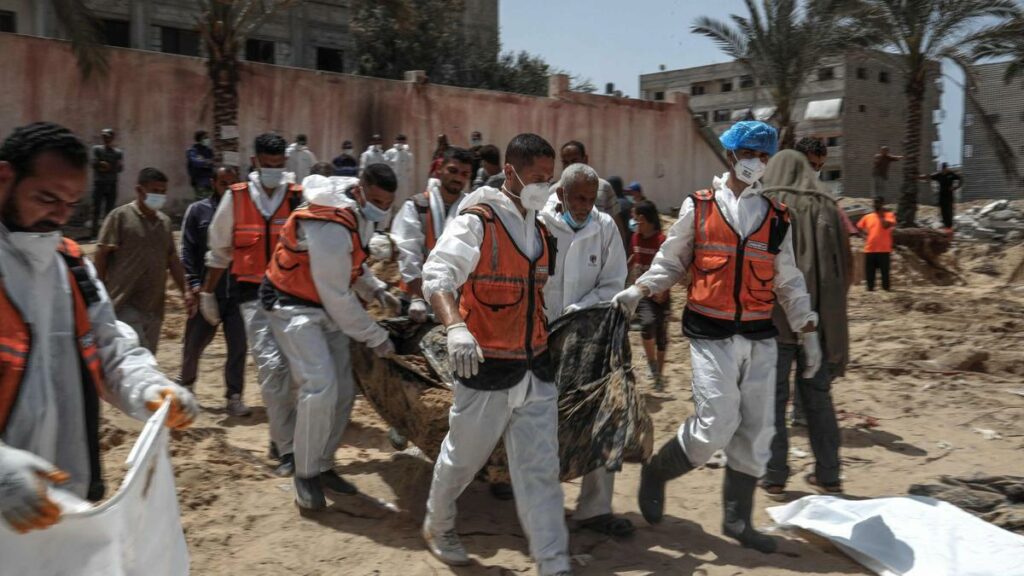News
Mass graves in Gaza show possible massacre and war crime

April 24, 2024 | 5:30 p.m.
Investigation reveals compelling evidence of violations of international law
In this detailed analysis, we will explore the legal and humanitarian implications of the recent exhumations in Gaza, where more than 300 bodies were found in a charnier inside the Nasser hospital in Khan Younès. This situation has triggered accusations of war crimes and has revealed the existing tensions between Israel and Hamas.
The recent exhumation of mass graves in Gaza has revealed a painful and alarming reality. The work carried out by Civil Defense teams at the Nasser hospital in Khan Younès, which concluded in the discovery of more than 300 bodies, have revived the discussion about violations of international humanitarian law and the responsibilities of the parties in conflict. Experts believe that this discovery could constitute evidence of a war crime.
The discovery of these bodies is not only a humanitarian tragedy but also a complex legal challenge. According to international humanitarian law, mass graves indicate serious violations of human rights and can be considered evidence of war crimes. In this context, the intervention of international organizations is essential to ensure an exhumation and identification process that complies with international standards.

The presence of unidentified bodies and the methodology used for their burial violate the Geneva conventions and other international treaties. This not only implies a lack of respect towards the deceased and their families but also complicates the mourning and justice processes. The victims' families, already carrying the weight of pain, face uncertainty and a lack of closure.
The international response has not been long in coming. Organizations such as the International Red Cross have been called to intervene to assist in the process of identifying the bodies. This is crucial to provide some measure of comfort to the families and to ensure that those responsible for these acts are brought to justice. It is imperative that the international community act in a decisive and coordinated manner to address this crisis.
In terms of legal consequences, the situation in Gaza could have significant implications internationally. The UN has indicated the possibility of initiating investigations that could lead to legal action in international courts.. This process, however, will be long and will require meticulous collection of evidence and testimony.
The role of international justice is now more crucial than ever. It is not only about assigning responsibility, but also about sending a clear message about the unacceptability of violations of human rights and international humanitarian law. The credibility of international institutions is at stake, as is people's faith in the possibility of impartial and effective global justice.
The mass graves found in Gaza are a grim reminder of the atrocities that can occur in armed conflict and the importance of upholding humanitarian principles. The international community must respond with determination to investigate these events and ensure that justice prevails over impunity. Lasting peace can only be based on justice and respect for human dignity.
More news
OnlyFans a new form of sexual exploitation
May 7, 2024 | 8:30 p.m.
A report from the Federation of Young Women points to Onlyfans as a new form of sexual exploitation that mostly affects young women. He …
Continue reading «OnlyFans a new form of sexual exploitation»
